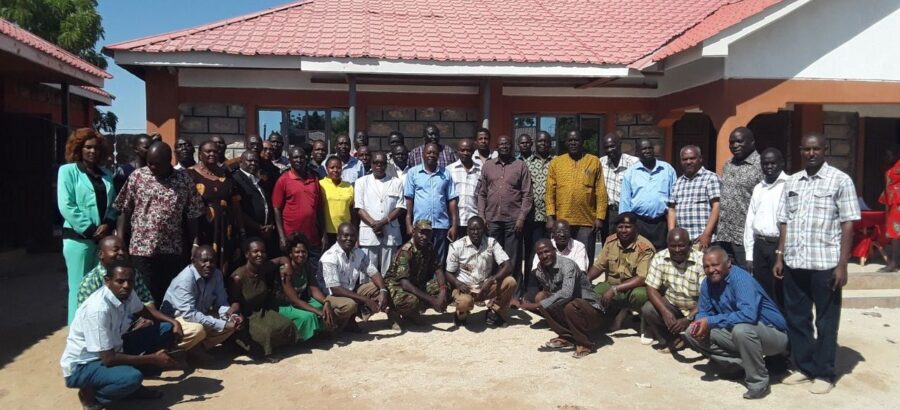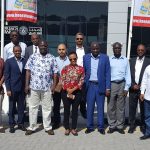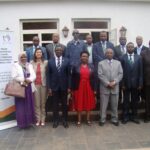Opening remarks
The two days meeting was opened by Camlus Omogo, the Director of CEWARN. He noted that mobility by pastoralists has increased in the recent past in the IGAD region because of the cyclic drought which has been severe in Turkana County, Kenya and Kapoeta County in South Sudan. Pastoralists have as a result been forced to move into Karamoja region of Uganda in search of pasture and water. This has usually contributed to conflicts over dwindling resources, led to increased livestock theft, murders and sometimes rape. It is to put in place early information collection capacity assessments to strengthen grass route structures for conflict mitigation before they snowball into big conflicts. Establishment of conflict prevention and management resolution platforms will facilitate further communication to resolve any ongoing or arising issues.
The meeting was also addressed by Turkana county commissioner, resident district commissioner of Moroto district and the public service county executive committee of Turkana County on behalf of the governor. It was attended by security officers from Karamoja region, Uganda and Turkana county, Kenya. They included resident district commissioners, Uganda peoples defense force, Karamoja region, Uganda and Kenya defense force commander, County commissioner, police commissioner, Kenya and their technical staff. In attendance too were ICPALD, CEWARN, ICPAC, GIZ and community leaders from the Karamoja cluster.
The following were resolutions reached after each country (Kenya and Uganda) group discussions
RESOLUTIONS
- Construction of water dams that will minimize movement of pastoral communities thus reducing conflict; Construction of 3 large-size dams on the Kenyan side as a priority; Continued construction of dams in Uganda.
- Continued peace dialogue meetings along the border line to enhance communities’ cohesion. Common policy by both Governments that will seek to reduce bureaucracy tailored for the pastoral communities.
- Establishment of proper modalities to track/branding livestock crossing over the border. This will also ease recovery of stolen livestock in the region.
- Review and harmonization of previous community agreements in the region. Commemoration of community accords e.g. Lokiriama and others.
- The need for enhanced security patrols along the border by the Kenyan and Ugandan security agencies.
- Gazettement and opening of border entry points e.g. Lokiriama & other points.
- Peace dividends programs that target pastoral communities living across the border. Peace activities targeting the youths who participate in cattle thefts/raids.
- Institutionalization of peacebuilding; Harmonization and support to the peace structures in the region. There should be exchange visits for exposure purposes.
- Efficient coordination and information sharing among the security agencies. This will also address the aspect of exaggeration of stolen animals and trigger quick action to recover stolen animals.
- The need for enhanced participation of Women and youths in peacebuilding and being at the decision-making level.
- Pastoralist communities must abide by law of the country they are crossing to graze. Those found stealing livestock or illegal possession of Small Arms and Light Weapon should be arrested by the relevant agency and face the law of the land.
- Utilizations of liaison officers for real time flow of information;
- Construction of markets that enhance cross-border trade among communities. Informal trade should be encouraged by both Governments.
- Establishment of cross-border verification committees
- Promote synchronized control of tans-boundary animal diseases along the border
- Improve infrastructure in education, health and road networks (affirmative action for child education); establish mobile nomadic education in pastoralist settings
- Implementation of the previous agreed resolutions. (Moroto, Kotido and Kampala resolutions & others). Resolutions agreed must be coordinated and involve all the relevant structures.






